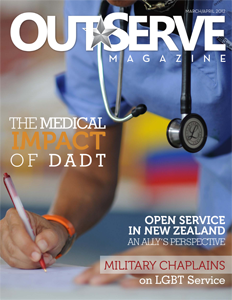In Honor of Specialist Jose Zuniga
by Sue Fulton
Joe Zuniga, the only son in his conservative Mexican-American family, enlisted in the Army in 1989 after graduating from Texas A&M with a degree in journalism. He had turned down an appointment to West Point to stay close to his mother, who was ill with stomach cancer, but coming from a long line of soldiers, he felt drawn to military service. His mother’s experience drew him away from journalism and toward medicine, thus his selection of a medic specialty.
He was awarded the combat medical badge for his medic work with Iraqi prisoners during the Gulf War, but he truly excelled at his chosen field: journalism. Then-Specialist Zuniga was honored as military print journalist of the year in the Army’s largest major command, where he wrote about taboo subjects such as HIV/AIDS in the military. That same year he became the Sixth US Army’s 1992 Soldier of the Year.
At the time, shortly after the election of President Bill Clinton, debate raged over lifting the ban on gays in the military. Many argued that gays simply weren’t fit to serve; the few gay veterans were not well-known, or dismissed as misfits. Zuniga, having served with distinction as a combat medic and earned the extraordinary honor of Soldier of the Year, decided to come out.
On the eve of the 1993 March on Washington, with the support of the National Gay & Lesbian Task Force, Zuniga came out as a gay soldier at a major public event. He garnered huge media attention, including the front pages of every major newspaper, the cover of the New York Times Magazine, and interviews on every major broadcast. He also became the target of attacks and threats that come with celebrity, especially a gay celebrity in an era before the acceptance and tolerance taken for granted today.
At a pivotal time, Zuniga was able to put a face to the issue – the face of a decorated gay soldier. Through 1993 and into 1994, especially with the publication of this book Soldier of the Year, he traveled around the country speaking to audiences about his experiences. He received numerous letters from closeted gay, lesbian, and bi service members, which he said sustained him during difficult and dangerous times and made sacrificing his career worthwhile. He says that the most important thing he learned through his work is that “Some things are worth fighting for, even if it means sacrificing what is most important to you in order to effect change.”
In addition to his ongoing work since DADT’s enactment, including on the Board of Directors of the Servicemembers’ Legal Defense Network (SLDN), Zuniga has since 1999 continued to work for the community in his role as President of the International Association of Physicians in AIDS Care (IAPAC), a professional medical association with 17,000 members who work in the fields of HIV, malaria, and tuberculosis worldwide.
















